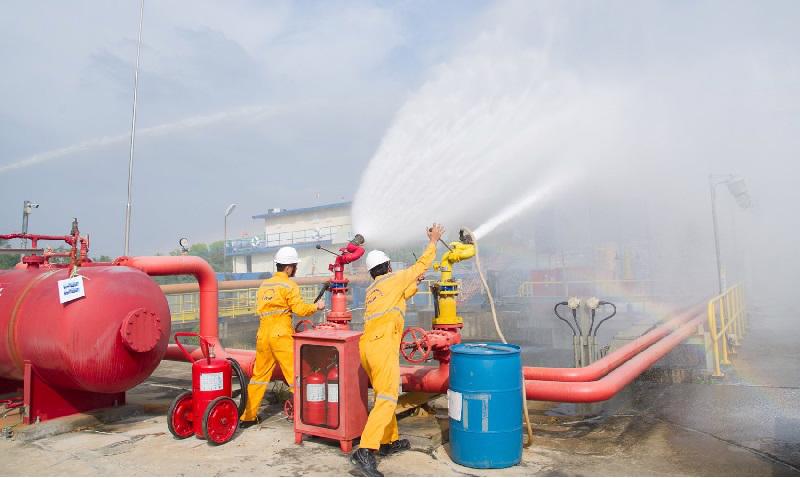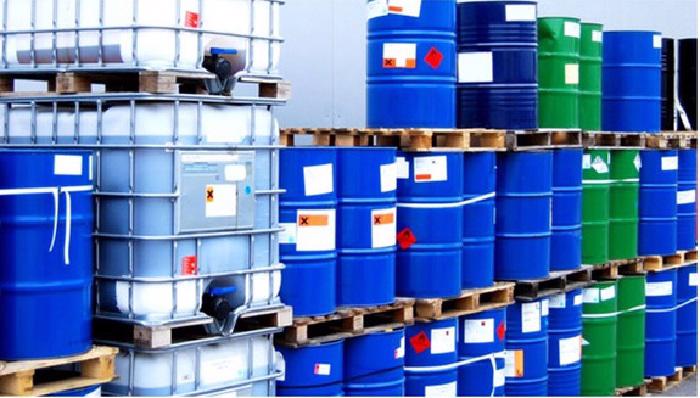[ad_1]
The government has just issued Decree 82/2022/ND-CP of October 18, 2022 amending and supplementing a number of articles of Decree 113/2017/ND-CP of October 9, 2017, which provides for the implementation of a number of Articles detailed and regulates articles of the Chemicals Act. Decree 82 comes into force on December 22, 2022.
Currently, Government Decree 113 does not require chemical incident response drills for chemical plants that are required to develop chemical incident prevention and response measures.
Many chemical companies did not organize chemical incident response drills after the development of the response. When a chemical accident occurs, the above establishments are still confused and do not react promptly, leading to serious consequences, especially in the case of incidents involving hazardous chemicals that are on the list of chemicals to be built as indicated in Annex IV of Decree 113 , such as NH3, Cl2, HF, HCl, cyanide, methanol…
In order to overcome the above limitations, Decree 82 has amended the provisions: chemical plants must organize samples of chemical incident response plans developed within the framework of incident prevention and response measures every year, with the witness or the instruction of a representative of the local specialist. If the chemical company stores chemicals on the list of hazardous chemicals, it must develop a chemical prevention and response plan by the managing authority, but below the threshold specified in Annex IV of Decree No. 113.

Prevention and response to chemical incidents.
Decree 82 also states that projects and facilities storing mercury and mercury compounds over 01 kg that were put into operation before the entry into force of Decree 82 without a prevention plan must develop a prevention plan in response to chemical incidents approved by a competent authority and response to chemical incidents and submit them to the competent state administrative authorities for assessment and approval within 2 years from the date of application from the date of entry into force of Decree 82.
Regarding the declaration of imported chemicals: Currently, the declaration of imported chemicals is done through the national single-window portal according to Article 27 of Decree 113. Chemical declaration information is automatically transmitted to the system of the Ministry of Industry and Commerce System of the Ministry of Industry and Commerce automatically replies to the declaring organizations and individuals and Customs through the National Single Window.
The automatic reaction to the results of the declaration of imported chemicals currently has some shortcomings. In particular, organizations and individuals that import chemicals for business purposes are subject to a restricted chemical trade license, which includes some particularly hazardous chemicals such as nitrous oxide, cyanide compounds, mercury compounds imported without a license or in excess of the licensed quantity for trade. However, the system still automatically responded to the results without timely sanctions to manage the organizations and individuals who do not meet the conditions, leading to potential risks of causing insecurity, security and social order.
Therefore, Decree 82 adds new regulations on chemicals that require special control upon import.

on the accuracy of information on imported chemicals.
Therefore, chemicals that require special control upon import include: Hazardous chemicals that require control when carrying out the procedures for declaring imported chemicals include: nitrous oxide, cyanide and compounds of cyanide and hydromercury and mercury compounds.
Authorities and individuals must declare within 16 working hours from the moment the Ministry of Industry and Trade system receives the declaration dossiers for chemicals subject to special control upon import.
If the dossier is invalid, the authority receiving the declared information sends feedback via the electronic system to the organization or person declaring the chemical to amend and complete the dossier.
Cases of invalid dossiers include the total quantity of imported chemicals from the beginning of the year to the time of declaration that is greater than the authorized quantity in the year, as well as incorrect declaration of imported chemicals.
If the dossier is valid, the authority receiving the declared information must approve the dossier and respond to the declared information, the information is reported back to the declaring organization, individual and agency via the National Single Window.
The decree also establishes the responsibilities of organizations and individuals that declare chemicals through the National Single Window.
Accordingly, organizations and individuals are required by law to take responsibility for the accuracy of the information declared in chemical declaration dossiers through the National Single Window according to the forms and electronic documents, supporting documents and data available on the National Single Window Portal.
In case the declared information is incorrect, the electronic chemical declaration file is the basis for the responsible organization or individual to sanction administrative violations. Organizations and individuals are responsible for maintaining a set of chemical declaration dossiers that they can provide to the competent authorities upon request for a minimum period of 5 years.
The above regulation aims to develop a legal framework for procedures for declaring imported chemicals in cases that require special control, such as: B. mercury compounds, nitrous oxides, cyanide compounds; Complete regulations on the responsibilities of organizations and individuals declaring imported chemicals.
[ad_2]
Source link

